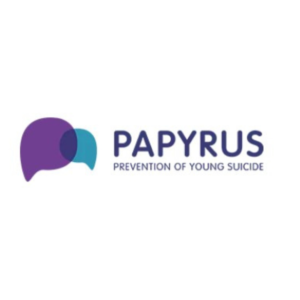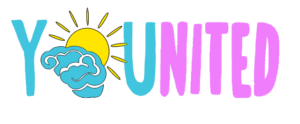Mental Health
Promoting positive mental health
Good mental health is as important as good physical health. There are many ways to help and support your child but it’s just as important to make sure your mental health is good too! Lots of the ideas below are free to do and for many are part of everyday life. But it’s always good to remind ourselves of what helps – so take a look!
Head your head has lots of free help and advice for children and young people (and their parent carers) about keeping in a healthy place.
The NHS website has some helpful advice about children and young people, and how to look after your own mental health.
The Mental Health Foundation also has advice and signposts other services like Young Minds
Although this is an Australian website we think it has some useful resources and ideas: Raising Children
ERPCF Parent Carer’s Guide to Mental Health Services
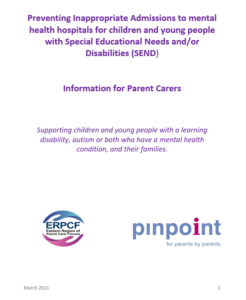 Our Eastern Region Parent Carer Forum group, of which we are part, have co-produced a parent carer guide to mental health. It covers all you need to know and how to find help and support for your child (and you). You can access it here: Mental Health Information for parent carers March 2021
Our Eastern Region Parent Carer Forum group, of which we are part, have co-produced a parent carer guide to mental health. It covers all you need to know and how to find help and support for your child (and you). You can access it here: Mental Health Information for parent carers March 2021
British Institute of Human Rights and Lived Experience Experts
The British Institute of Human Rights and Lived Experience Experts have created two resources on human rights in Children and Young People’s Mental Health Inpatient Services as part of their ongoing project with NHS England. These resources are about human rights for children and young people in mental health inpatient settings, including information on staff’s duties, relevant rights, real life examples and details of how to challenge decisions which aren’t rights respecting.
They have created two resources: a shorter version of the resource, aimed at children and young people in inpatient settings with the vital information about human rights they need to know. They also have an extended version, suitable for young people and their parents, which features more detail and real-life examples.
Both resources are in plain language and available to download from their website here.
Mental Health Crisis
CPFT have a First Response Service (FRS) for people of any age who are distressed, worried about their mental health or experiencing something that makes them feel unsafe. It provides 24-hour access, seven days a week, 365 days a year, to mental health care, advice and support. Find out more about the First Response Service.
Trauma
Some children and young people experience trauma and may need additional support. Mental health services can provide the appropriate support and identify ways to meet a child or young person’s needs. Please ask your doctor for a referral.
For those wanting to find more self guided support the following resources may be helpful (but are not a substitute for professional involvement).
How the mental health system in organised: Tier based Mental Health Services
Support for mental health problems for all children and young people is Tier based.
Tier 1 – Universal mental health services provided by professionals who do not specialise in mental health e.g. Teachers.
Tier 2 – Mental health services provided by practitioners who specialise in mental health e.g. counsellors.
Tier 3 – Specialist Child and Young People’s Mental Health Services, CYPMHs / CAMHs
Tier 4 – Inpatient / Highly specialised mental health services.
Tiers 3 and 4 Preventing Inappropriate Admissions to mental health hospitals for children and young people with Special Educational Needs and/or Disabilities (SEND)
The NHS has committed to significantly reducing the number of children and young people with a learning disability, autism or both being cared for in an inpatient facility / hospital. There is help and support to work to help children and young people be treated and supported from home. The NHS working with the Eastern Region Parent Carer Forums has written a parent carer guide to these services.
Dynamic Support Registers of Children / Young People who need extra support
Local health and social care services need to know who is most at risk of inappropriate responses by services. CCGs must now have a register of children and young people who have a Learning Disability, Autism or both and are at risk of going into, or are in, inpatient mental health settings. This is part of Building the Right Support. The register, called the Dynamic Support Register (DSR) should help children, young people and adults get the support they need before their problems get too serious and certainly before they need to go to hospital.
Your child, young person or adult should be on this register if they:
- Are currently in a hospital setting;
- Are referred for or accessing specialised services for challenging behaviour (e.g. intensive support services, specialist short breaks, special schools, residential care and supported living);
- Are subject to the provisions of the Mental Health Act or subject to Deprivation of Liberty safeguards;
- Have had a previous hospital stay (for example, within the last 5 years);
- Are / were involved with the youth or criminal justice system (for example, within the last 12 months);
- are children in 52-week educational placements;
- are in receipt of NHS Continuing Health care (CHC) funding;
- are in receipt of services from youth offending teams (YOT).
Children and young people up to the age of 18 who need extra support (see list on page 4) have the right to a Care, Education, Treatment review (CETR). A CETR should start when a hospital admission is being considered. You also have the right to ask for a CETR for your child or young person at any time if you have concerns about a placement breakdown, if there is a crisis or if there is a risk of inpatient admission.
If your young person is over 18, this will be called a Care Treatment Review (CTR).
CETRs are for children and young people who have learning disabilities and/or autism and who have been, or may about to be admitted to a specialist mental health hospital (Tier 3 or Tier 4). The CETR makes sure that local services (social care, Special Educational Needs (SEN) Team and school or college) are involved so all issues can be addressed and solutions found.
The NHS, together with Local Authorities are moving towards the aim of having one person, a Keyworker, as the central point of contact for a child or young person with a learning disability, autism or both who has a mental health condition, and their family members and carers, and the services involved in their care. At the moment in the East of England, the Keyworkers are part of an 18-month pilot project running in just two areas – Bedfordshire, Luton & Milton Keynes and Hertfordshire. Keyworkers in these pilot areas will only be for a small number of children and young people who:
- Have been diagnosed with a learning disability and/ or autism;
- Are under 18 years old or have yet to move to adult services;
- Are currently an inpatient in a mental health hospital, or are considered to be at risk of a hospital admission.

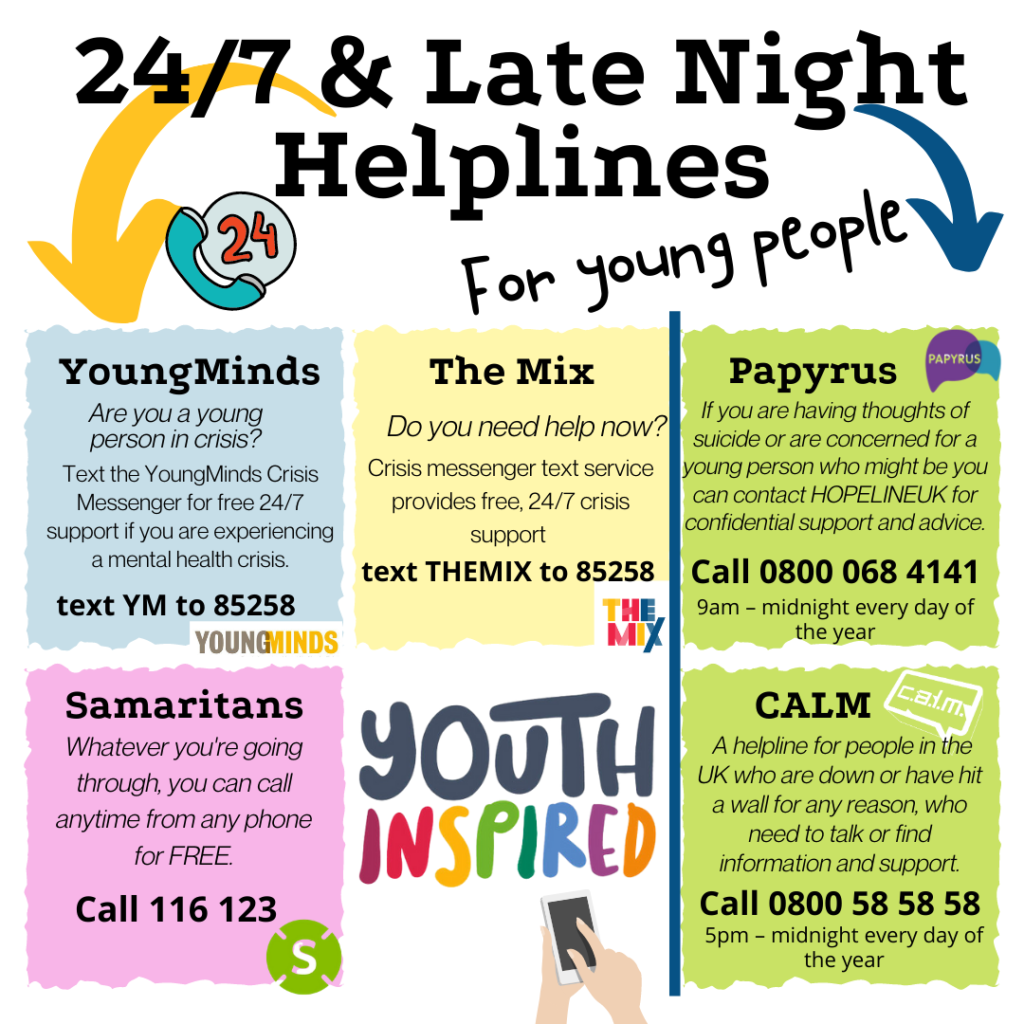
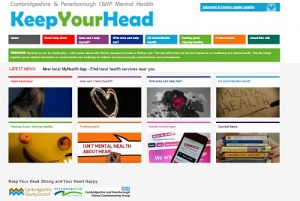 Keep Your Head
Keep Your Head YoungMinds offers free confidential online and telephone support to anyone worried about the emotional and mental wellbeing of a child or young person up to the age of 25. You can call the free parents’ helpline on 0808 802 5544 from 9.30am to 4pm, Monday to Friday or look at the
YoungMinds offers free confidential online and telephone support to anyone worried about the emotional and mental wellbeing of a child or young person up to the age of 25. You can call the free parents’ helpline on 0808 802 5544 from 9.30am to 4pm, Monday to Friday or look at the  Kooth
Kooth
